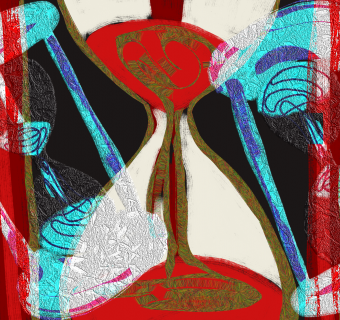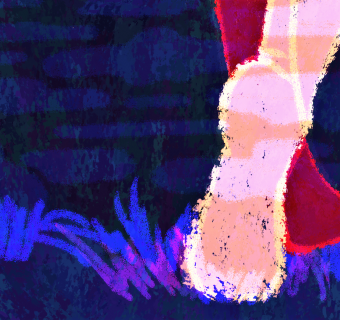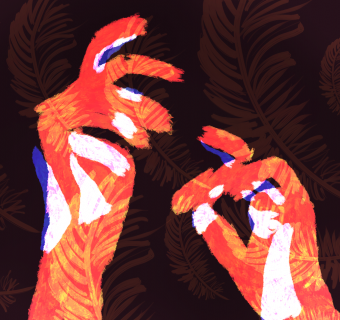*This piece talks about mental health, and some aspects of this piece may be triggering for someone recovering. If you are in need of mental health help and are a current UVA student, please contact CAPS (Counseling and Psychological Services) at (434) 243-5150 during the day. If you are in crisis and need help after hours, please call 434-243-5150 or 911 if you need immediate help.
**It is also important to note the difficult mental health issues that Black men in particular face, especially with the current climate, and Daniel Fairley—a mentor and activist (to name a few of the amazing things he does)—hosts a podcast called “How U?” that focuses on Black men’s mental health and that contains a wealth of knowledge and hopefully comfort for Black men.
I am not being hyperbolic when I say that all of my friends are at the very edge of their limits. The University of Virginia is already an incredibly difficult school academically, and within its suffocating competitive atmosphere, students study for exams for thirty-six straight hours, and then over-drink on the weekends to try and ‘chill out.’ My girl friends, though, are very open about their mental health. Many of the women I know are in therapy, and we often discuss how we truly feel, helping each other map out time to rest and eat. This observation is also not made to cast judgement on those not in therapy—especially since accessing therapy can be a hard process. Exam time is taxing, of course, but I started to notice something my first year that was alarming. In relationships with female classmates, a casual conversation included an honest answer to “How are you?” With my male classmates, though, the answer was always, unfailingly, “I’m good!,” even when it seemed obvious that they were not doing well. I already knew that the suicide rate is higher for men than women, and when I was asked last fall “If you could help fix a situation right now, what would it be?,” my immediate response was “Men’s mental health at UVA.”
Also, being a woman, I do not want to just speak about what I have noticed. I want to center actual male UVA students’ voices. To achieve this, I casually talked with, and formally interviewed, several current male students. I asked a handful of general questions, and recorded responses. The answers detailed in this piece are not all from the same man. In the interest of keeping identities protected, every new quotation mark indicates the start of a response from a different man. I would like to extend a huge thanks to Michael Kerns and Soumil Madhiwala, both UVA 2022, for being vulnerable and open in allowing me to name them.
What is the climate surrounding men’s mental health like at UVA?
“I mean, I think for men specifically it can be more difficult to talk about mental health, but in the U.S. that's a phenomenon. At UVA I know a lot of groups that fundraise or do campaigns specifically about men’s mental health. In my personal experience, in men talking about their mental health, they’re less forthcoming, but when they do [discuss their mental health] it’s very substantive.”
"But I am worried a lot more with my guy friends because I’m worried that they’re just playing things off like they’re fine."
“Coming from me and friends who identify as guys at UVA, it’s very distant. For us, it’s a lot easier for us to just not express how we’re feeling. When I was going through a tough time, I put on this persona. Coming to UVA you understand it is going to be challenging. And the UVA mindset of trying to always be the best, and the diminishing of others, worsens this. We are just less likely to reach out for help. If you ask a guy versus a girl about mental health, you’ll hear about two different sides of the story. We’re more hesitant when it comes to speaking out about things like this. It’s a lot easier for girls, and this is a stereotype. I was fortunate to reach out for help and get it, but many other people at UVA just hide it and it’s sad to see. Whenever I reach out to my friends, they’re stressed. But I am worried a lot more with my guy friends because I’m worried that they’re just playing things off like they’re fine. The outside persona of somebody is much different than what they are when they’re alone. Part of that is having the other person be vulnerable or having someone be comfortable enough to speak about it. At UVA we need to work on guys speaking to people.”
Is it normal in a group of guys to talk about your emotions?
“Probably not. There are more common topics of conversation than what you're going through. You might say ‘I’m stressed about school, my relationship is stressful, et cetera.’ If someone does say something, there is follow up. It’s not commonly said, so when it is it’s taken very seriously.”
“No, that would never happen. Between me and my friends, yes, because my friends know my story. But for other individuals it is not the case, and it wasn’t the case when I first started at UVA. If I hadn’t been through [that] situation, I wouldn’t be as knowledgeable as I am now. If I were to go out with a friend that doesn't know me as well, we wouldn't have this conversation.”
Do you ask your guy friends how they are doing often?
“Actually, yes, because I’m the president of my fraternity and every Wednesday we have a debrief about our week. A lot of times people will say they’re stressed or sad. In that context, for sure. Outside of that, not as frequently.”
“I personally do, yes, I ask all of my friends. Would that be different if I didn’t go through [my own difficult mental health] situation? Probably. I probably wouldn’t ask my male friends but I would ask my female friends.”
"Every Wednesday we have a debrief about our week. A lot of times people will say they’re stressed or sad... Outside of that, not as frequently."
Does it seem like reaching out to CAPS or other mental health resources is a normal avenue men at UVA take when they are struggling?
“I hate to do this but I don’t know. When I went through my situation I didn't get help from UVA resources, per se. I know a family therapist and I reached out to them instead of CAPS because I had a personal connection. CAPS and all of these other mental health organizations like NAMI do an incredible job showcasing resources. I know as being health chair for ISA (the Indian Student Association) that I have done my part making resources available, like starting a South Asian Support Group for students through CAPS. It’s important to understand that all students come from different backgrounds, and [treatment] is not a one size fits all. You do see people at UVA getting better, and an aspect of going through mental health issues is you have to be willing to change, and having that mindset that taking anti-depressant pills can be awful for the first few weeks [is important]. It takes a while for those drugs to kick in. There are better ways and there aren't better ways; it’s suited to the individual and there is no clear cut path. There are so many different places to go outside of the UVA community.”
“I would guess no, but I can only speak from my experience. I have thought about it, but I've never reached out to them. To my knowledge, I don’t know anyone who has but also people may not talk about it. A lot of people don't [talk about it].”
What do you think is the biggest barrier to being more open about men’s mental health at UVA?
"I think culture and climate are the biggest thing. I don’t want to say it’s awkward for a guy to reach out, but they feel out of their element. A lot of people don’t have a lot of mental health issues until college because they could fly through high school. A big part of this is being able to grow with the community, and creating lasting relationships. But yes, I would say that [for] anyone who identifies as a male or uses he/him pronouns, it’s hard to make that bridge and [to build] that gap. It’s difficult to start. Personally, I wouldn’t have gotten help if my female friends hadn’t encouraged me to reach out. Finding the people who you are comfortable with and realizing that it’s okay to be vulnerable is important.”
"I think culture and climate are the biggest thing."
“The biggest one is no one is really talking about it, but as more people talk about it, it's kind of lowering that wall, that barrier, for it to open. In casual conversation it’s hard to be like, ‘Oh I feel like this’. No one wants to be the one that gets bad grades or doesn’t get ‘x’ internship offer they wanted. If people were going to talk about their mental health, that’s the first thing they’d talk about. That weighs pretty heavily on people. ”
Do you have anything else you would like to add?
“I’m passionate about this topic a little bit, I think especially men should be aware that it’s okay to not be okay. It’s okay to get help and you should get help. For men especially, if you’re bottling up or releasing it in unhealthy ways like drinking a lot, anything like that, taking drugs, you’re addicted to the gym, you’re a workaholic, et cetera—people should one, be open about their struggles, and two, if you have a friend that is blacking out all the time, you shouldn't fear ruining your relationship with them [to offer help].”
"It’s okay to be vulnerable as soon as you get here."
“I hope the culture is changing. When you look at guys in their first year versus fourth year, you can see a change. They are more vulnerable to talk about these issues. By the time they’re in their fourth year, you have your group and you know them well, and you can really be more vulnerable. It’s okay to be vulnerable as soon as you get here, there are people here to help you, no one is going to call you weird for having an issue.”








